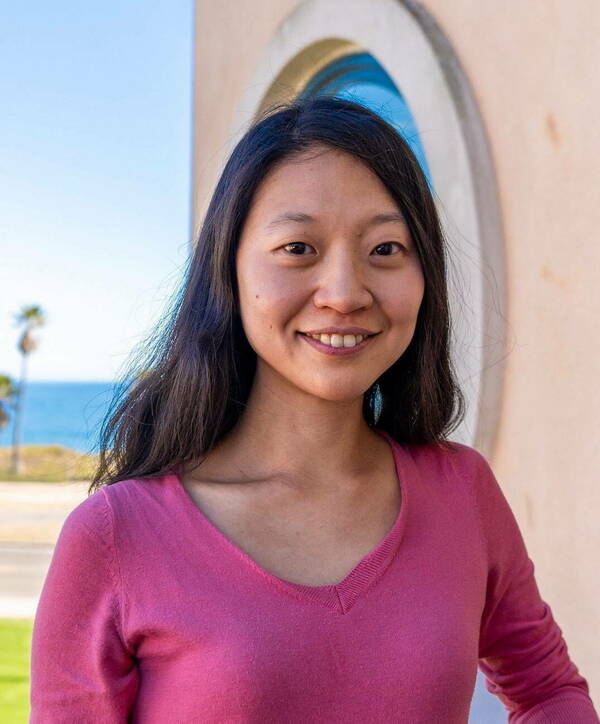
Associate member Prof. Yi-Ting Hsu receives Early Career Development Award from the NSF in the field of Designing topological superconductivity and correlated phases in Van der Waals materials. A summary of her research can be found below:
Nontechnical Summary
This CAREER award supports theoretical research and education with the aim to identify and design
superconducting materials that possess a new state of matter, topological superconductors. Superconductivity is a collective quantum mechanical state of electrons that can conduct electricity with zero electrical resistance. Topological superconductors additionally possess special quantum mechanical states on their surfaces called Majorana modes. Owing to these Majorana modes, topological superconductors could be a platform for quantum computing that is highly resistant to the environmental noise that spoils the quantum states leading to errors. However, a key challenge that hinders experimental progress is the difficulty in discovering actual superconducting materials that unambiguously exhibit Majorana modes. To predict new topological superconductors, the PI aims to harness recent experimental breakthroughs that provide new opportunities to realize predicted topological and other quantum phases through manipulating stacked atomically thin layers of materials known as van der Waals materials.
The PI and her group will develop fundamental guiding principles for identifying and designing materials and materials systems exhibiting topological superconductivity and various quantum phases self-organized through strong electron interactions. In particular, the PI will focus on how to achieve targeted phases in Van der Waals material systems using experimentally accessible “knobs”, such as the relative orientation between layers and the structure and composition of the individual layers. Guiding principles will be derived from mathematical frameworks describing the targeted phases and demonstrated on realistic materials-based models with analytical and numerical methods. The impact of the proposed research will be to help guide experimental efforts through collaboration to find Van der Waals materials that are topological superconductors or host interesting quantum phases.
This award also supports an effort aimed to initiate new outreach programs that aim to (1) foster interest in science for pre-K children through their parents, and (2) support the pursuit of an academic career for women of child-bearing age or with young children. To advance (1), the PI will launch a public multi-media channel that provides explanations for physics- related “popular” questions kids often ask using toddler friendly language. To advance (2), the PI will form support groups for female students, postdocs, and faculty who are of child-bearing age, are expecting, or have children in the South Bend area. The overarching goal for the support groups is to reduce the “leaky pipeline” problem of women in academia by providing emotional and career support.
Technical Summary
This CAREER award supports research and education on theory-guided material design for first- and higher-order topological crystalline superconductors as well as correlated quantum phases in Van der Waals systems. The rareness of materials that are topological superconductors has been one of the key challenges in the field, which hinders experimental investigations and applications of first- and higher-order topological superconducting phases in two and three dimensions. Recent experimental breakthroughs in engineering few-layer Van der Waals systems provide new opportunities to realize topological and correlated phases. Nonetheless, the huge multi-dimensional parameter space of material species, lattice structures, twist angle, and other experimental tuning knobs invites theory guidance for designing target-oriented new systems. The proposed research seeks to obtain theory derived guiding principles and predict concrete candidate systems hosting topological superconducting and correlated phases in few- layer Van der Waals materials. To achieve these goals, the PI will employ or develop mathematical frameworks for higher order topological superconductivity protected by crystalline symmetries, techniques treating single particle and many-body moire physics, as well as novel machine learning methods. This research is aimed to mobilize experimental efforts by (1) deriving comprehensive recipes for material design of higher-order topological superconductivity in Van der Waals systems, (2) developing a systematic four-stage approach for searches of topological superconductors using material databases and machine learning methods, and (3) proposing new twisted and untwisted Van der Waals systems that could host various correlated phases by designing renormalization group flows.
This award supports education and outreach programs that target parents of pre-K children, academic mothers, and female researchers. Activities include initiating the programs:
- A Hundred Thousand Whys in Nature: a public multi-media channel for parents of pre-K children. This channel will publish podcasts that provide short and correct explanations for physics-related “popular” questions kids often ask using toddler-friendly language. Polls and questionnaires will be held to collect suggestions and feedback from the parents.
- Coffee Breaks for Mothers in Academics: Support groups for female researchers. Support groups will be formed for female students, postdocs, and faculty who are of child-bearing age, are expecting or have children in the South Bend area. The mentor-mentee relationships and experience of sharing are aimed to provide emotional and career support.
This award reflects NSF's statutory mission and has been deemed worthy of support through evaluation using the Foundation's intellectual merit and broader impacts review criteria.